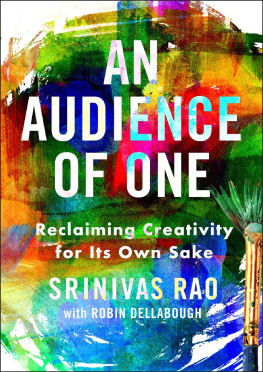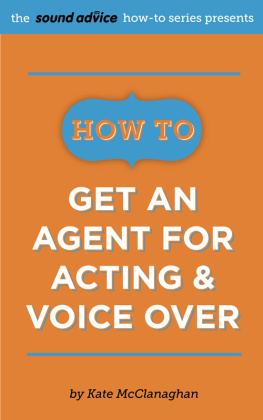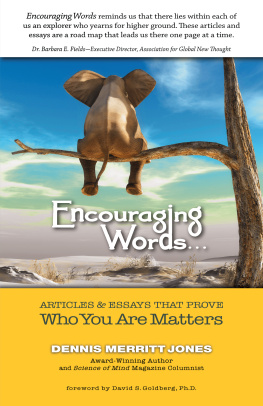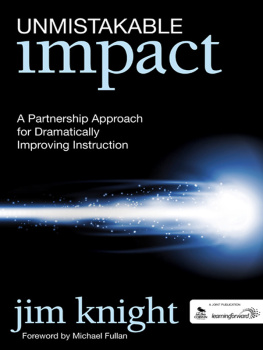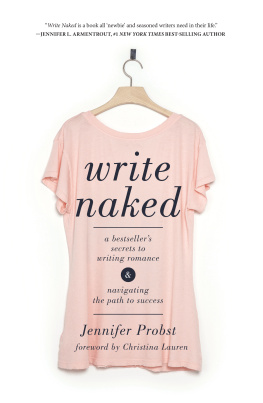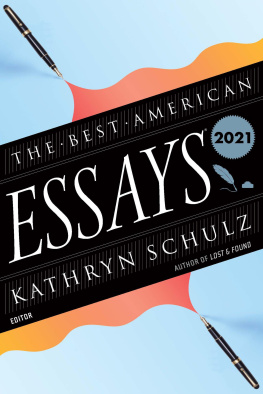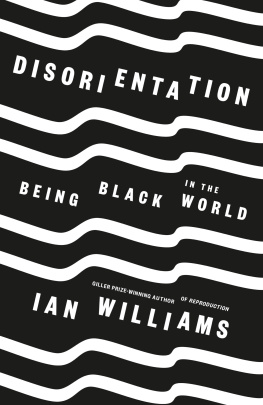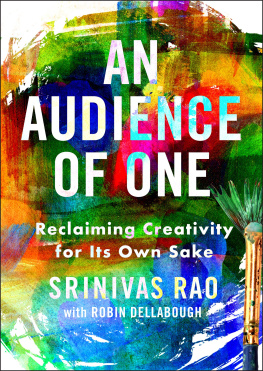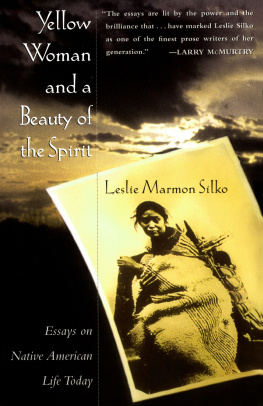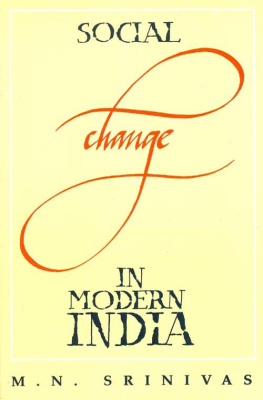FOREWORD by Justine Musk
The future belongs to the misfits.
Perhaps it always has.
It seems fitting that Im writing this at Burning Man, a strange and alternative pop-up city that had to venture into the middle of nowhere an ancient lakebed in the Nevada desert, known as the playa to bring itself into being near the end of every August.
Each time I come here, to this world of portapotties, alkaline dust storms, sweltering days, freezing nights, and no Starbucks I swear to myself, this is the last freaking time. And yet theres a point when something in me shifts over and I know I will return. How could I not? Welcome home, Burners say as we reunite with each other on the playa, and its true. Even if youve never been here before, the playa calls you home.
This is where your inner misfit can come out to play.
This morning, walking to Center Camp, I watched a guy ride around in an art car built to resemble a giant roast chicken. I like to imagine him waking up one morning (in his ordinary life, in the ordinary world) brushing his teeth, checking the weather and the traffic report, bracing himself for another day at his San Francisco startup, and realizing: I must build an art car that resembles a giant roast chicken.
It wouldnt have been his carefully polished, expensively educated, khaki-pants-and-buttondown persona that decided this. He probably didnt see it as a way to get women into bed (Hi. Im building a giant chicken. Want to have sex?) His colleagues at work, his drinking buddies, his best friend, the cute but shy waitress at his favorite diner who has been crushing on him for six months, probably never looked at him and thought, Within that man there lurks a giant-roast-chicken-rider, bursting to be unleashed upon the world.
But he knew there was something deep inside him, weird and whimsical and apart from the structures of everyday life, that needed to play. It might not have made sense in any rational way, but not everything does, or is meant to; it just is what it is, and what it must be.
Its your inner misfit.
This is all very well, you might be thinking to yourself, and maybe even
slightly amusing, but what the hell do tales of roast-chicken-riders have to do with my plans to dominate the world?
Earlier today a thirtysomething entrepreneur (decked out in Mad Max gear) was in my RV, telling me about his business, which has something to do with shipping readymade bags of supplies to people about to climb Mount Everest. Soon, he told me, all the delivery trucks will be automated; they will glide to your door, text your cell to announce their arrival, discharge packages at your feet. This elimination of the human will cut costs for many and increase profits for a few and put two to three million people out of work.
What he didnt say and didnt need to was how the same story will play itself out across industries.
In his book A WHOLE NEW MIND, Daniel Pink describes how the forces of automation, outsourcing, and an overabundance of products are ushering in a new era. Call it the Conceptual Age, or the Creative Age. The important thing, Pink writes, is that if you want to survive (much less thrive) you need to ask yourself three questions about whatever it is that you do:
Can a computer do it for you?
Can someone overseas do it cheaper?
Is what Im offering in demand in an age of abundance?
The only job security, to the extent that it exists, will reside in your ability to be high concept high touch: to come up with inspired and innovative ideas, gain creative insights, and connect with people on an emotional level through empathy, story or design. To do what computers cant, or that dude in China or India for only so many dollars an hour. To create experiences that people didnt know they wanted or needed but soon refuse to live without.
To turn your work and perhaps life itself into art, in a way that is unique to you and relevant to others.
It probably wont look like a giant roast chicken. Burning Man is not the so-called real world. But the real world is changing faster and faster, and the same creativity thats been pushed to the edges that seemed to belong only to artists in some mysterious Bohemia, or individuals in strange careers requiring them to wear black turtlenecks must now find its way into everyday life.
Im reminded of Albert Einsteins quote: "No problem can be solved from the same level of consciousness that created it."
When you look at the problems that threaten not just our livelihood as individuals but our future as a species, its pretty clear that we need a new consciousness.
We need new voices, new stories, new solutions, new truthsto revise the old ones and replace the broken ones, to lead us through this shifting, quicksand present and create a future that doesnt end up a repeat of the past but is truly created.
One day at a time.
One individual at a time.
You start to do this by tuning in to the still small voice that lives within us all, and allowing it to guide your choices and decisions.
I think of this voice as a soul-voice: the deep, coded line of poetry that is the essence of you, pushing to find expression in the world. The more successful we are at manifesting it, the more authentic we consider our lives to be. Instead of living out a secondhand narrative, we create a fresh one of our own.
We cant just tell our truth.
We have to live it. We have to embody it.
Creativity, then, is more than just a modern business advantage. It is a state of mind and a way of life. It also doesnt leave us any hiding places. We are what we make. Our creations show the truth of who we are. They also shape how -- or if -- the world remembers us when were gone.
This is the sacred dance. It demands nothing less than everything youve got to give it. Creativity builds on itself, and so does creative living. As Srini notes, things have a way of revealing themselves only once youre in pursuit of them. This generally means that you have to start running on faith.
Most people are afraid.
Most people get comfortable in a life that seems tolerable enough. They dont have the time, they complain, and may actually believe it (even as they spend hours watching TV, playing video games, surfing the Internet, at the mall). The price is that moment near the end when you realize that your life never belonged to you.
You never stepped up. You never owned it.
You never showed us who you really are.
And I started to wonder, Srini writes, what would happen if we left our heart on stage every time we created anything.
Its a bust your ass to shine, honest to a fault, no bullshit, zero apology performance. If you look at the work of some of the most successful people in the world youll see it as the undertone. It isnt just something they do, its who they are. Its the kind of performance where your heart and soul bleed.
I like that a lot.
We learn early and repeatedly that we can be hurt. We figure out ways, growing up, to shelter and protect our inner misfit. Our tender vulnerable soul-voice.
Our task, now, is to destroy all those old structures, out in the world and deep within us. To shrug off the armor, strip away the bullshit, open ourselves up and out with the tenderness and vulnerability of the child we no longer are so we can take our power as adults and build a new kind of life, an authentic life, that sets our inner misfits to play in a world that doesnt yet realize how badly it needs them.
Somewhere between what your soul knows and what the world wants you to know, is your choice about what kind of story you will live and how you will live it.


